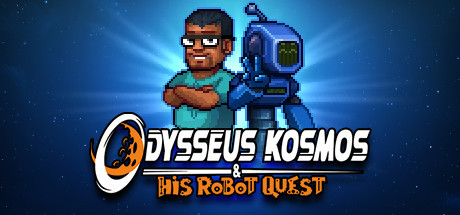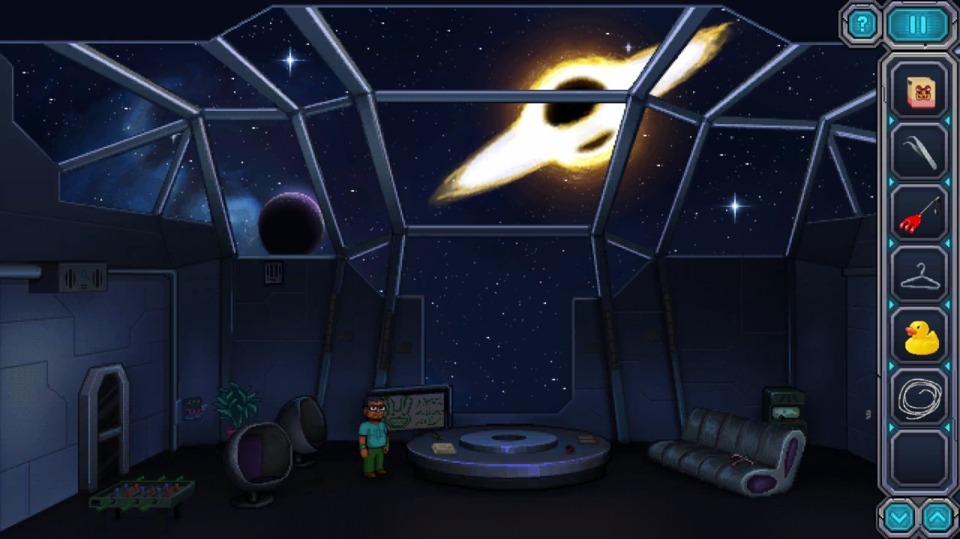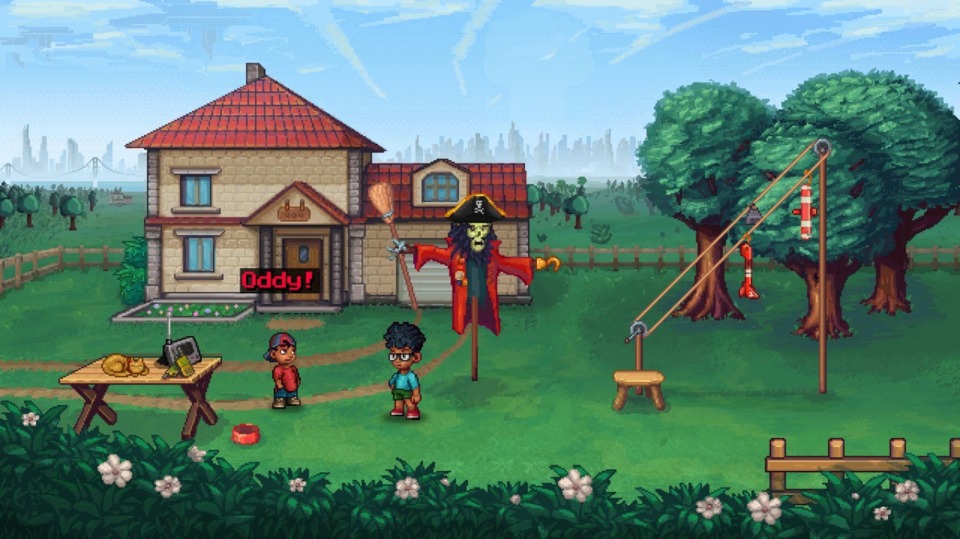Indie Game of the Week 59: Odysseus Kosmos & His Robot Quest (Episodes 1 & 2)
By Mento 1 Comments

While I created this weekly feature to galvanize me into playing more Indie games, I made no such lofty promises about branching out into the many varieties the Indie market has to offer. I'm a creature of habit, especially as I get older, and I'm frequently drawn to the many genres of my youth: genres that the nostalgic Indie market is all too eager to resurrect. That's why in this blog you tend to see a lot of CRPGs, a lot of 2D platformers, a lot of spacewhippers, and - indeed, as is the case this week - a lot of mouse-driven graphic adventure games. Odysseus Kosmos & His Robot Quest joins a large cadre of Indie adventure games - those from Wadjet Eye being the most prominent - in pretending the 3D and FMV periods of adventure gaming never happened: the time of the 16-bit, when games still relied on pixel artwork and the occasional voice-acted script if you were well-behaved, is where most of the genre classics debuted and is considered the golden era by the more hardcore fans, such as the small LucasFilm-special-thanking Russian team led by Pavel Kostin who put this episodic series together.
The eponymous Odysseus Kosmos is the mechanically gifted if slovenly engineer onboard the San Francisco, a heavy-duty corporate-owned spacecraft currently orbiting a black hole in a distant star system. The majority of the ship's crew has descended to one of the nearby planets to investigate an anomaly, leaving Odysseus to man the ship until they return. However, given that planets closer to a black hole observe the passage of time differently (I believe this was also a plotline in the 2014 movie Interstellar, from which I imagine this game got the idea), Odysseus has had to keep himself busy for four years while his crew are still only hours into their mission from their perspective. A lot of that time has been spent making menial repairs to the ship in preparation for the crew's return, consuming a lot of donuts and coffee, and getting nagged by the ship's maintenance robot (and Odysseus's only companion) Barton Quest. The game starts with a handful of minor problems to deal with, but later starts escalating towards a few major life-threatening issues and a mysterious Solaris-style ghost on the ship. At least, that's been the case so far for the first two episodes of a planned five-episode season. It was a remarkable twist of serendipity (if you recall from previous entries in this feature, I plan these out at least a month in advance) that the second episode dropped just as I was done playing the first - I'd literally closed the game down to have the update go through and see a new bulletin update on its store page.

For the most part, Odysseus Kosmos hews very closely to the classics of the genre, though doesn't quite go as far back as a wall of verbs to invoke. Rather, each item in the game has up to three all-purpose contextual commands: examine, interact with, and speak (and the latter solely for talking to Barton, who is the only other character. Mostly). Unlike many Indie adventure games of recent memory, Odysseus Kosmos has no qualms about giving you half a cargo bay's worth of inventory items to collect from the offset, and you have access to the majority of the ship - some seven or eight rooms - shortly after a little tutorial session in the ship's lab to explore for puzzle solutions. It's not particularly easy as adventure games go: I found myself stuck a number of times, even early on and with only so many places to visit. A lot of the puzzles rely on understanding technology and improvising solutions, bringing Odysseus's McGyver-like knowhow to the forefront, which led to a lot of puzzles that, well, let's just diplomatically say "stretch the limits of human imagination". The game also has its fair share of visual bugs (playing on the highest graphical quality setting frequently caused this weird flashing effect to occur until I knocked it down a tier), issues like not being able to interact with objects that Odysseus was blocking, and copious amounts of typos from what I imagine was a slightly hurried Russian-to-English localization.

However, there's plenty I can say in the game's defense, conversely. It has a supremely kind hint system, for one, and that more modern convenience of having a button to toggle hotspot locations if you're ever unsure what you can interact with. Beyond the silly references, the game's sense of humor is playful and sarcastic, especially in the ways that Odysseus and Barton snipe at each other like an old married couple, and it's doing a good - if molasses-slow - job of building suspense and establishing its leading man's character and backstory, even if we've yet to learn anything about his fellow crewmates beyond their names and occupations. Worldbuilding can be a bit dry in sci-fi given the amount of space-faring terminology thrown around, especially with the slow-paced contemplative sci-fi that Odysseus Kosmos flirts with in its quieter, lonelier moments and wonderfully ambient sound design. Although both episodes have amounted to not much more than having a list of computer systems to fix and whipping up a few inventive makeshift solutions for same, I feel like the game's building up to something special. It'll be a while until the full game is ready - the developer's tentative schedule is pointing to this time next year for its final episode - but this might be one to revisit once it's complete.
Rating: 4 out of 5. (So far.)
| < Back to 58: Chroma Squad | > Forward to 60: Human: Fall Flat |
